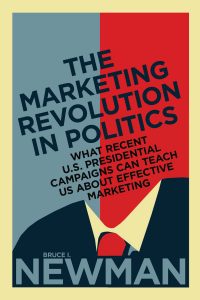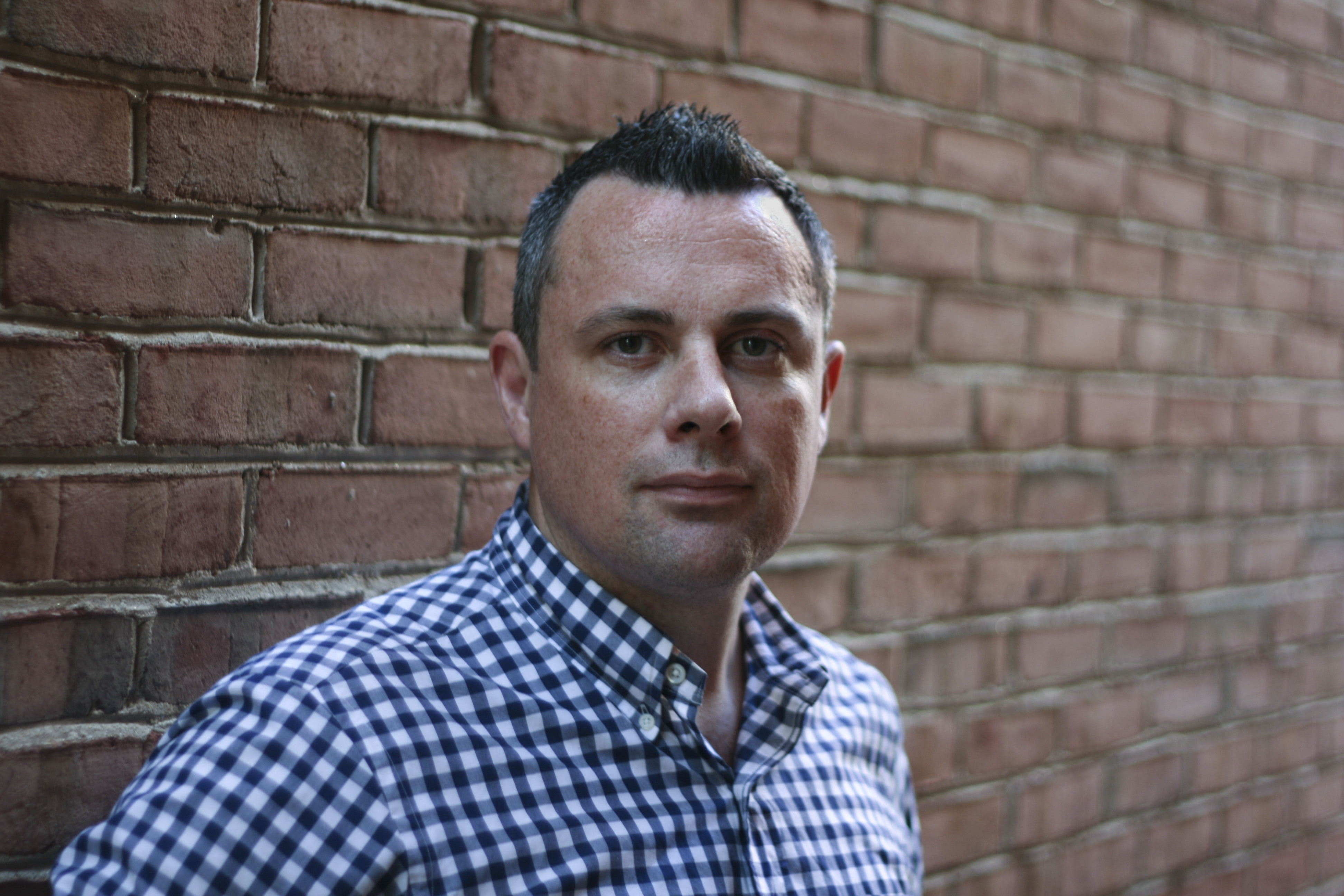 Sophisticated data analysis and creative thinking are essential for designing a successful marketing campaign today, no matter if the goal is to elect a president, sell a product or raise funds for a nonprofit. Marketing Professor Bruce Newman explores these ideas in his new book,“The Marketing Revolution in Politics: What Recent U.S. Presidential Campaigns Can Teach Us about Effective Marketing” (Rotman-University of Toronto Press), which is scheduled for release in January.
Sophisticated data analysis and creative thinking are essential for designing a successful marketing campaign today, no matter if the goal is to elect a president, sell a product or raise funds for a nonprofit. Marketing Professor Bruce Newman explores these ideas in his new book,“The Marketing Revolution in Politics: What Recent U.S. Presidential Campaigns Can Teach Us about Effective Marketing” (Rotman-University of Toronto Press), which is scheduled for release in January.
The book offers seven lessons that marketers in any industry can learn from recent U.S. presidential campaigns, focusing primarily on what Newman calls the “Obama Model,” the groundbreaking marketing strategies that Barack Obama’s marketing team used to win the 2008 and 2012 presidential elections. Newman also ties the lessons to innovative marketing methods used by organizations and leaders outside of politics, including Disney, Google, IBM, Procter & Gamble and even the pope.
“Political campaigns at the presidential level in the United States have become full-blown marketing campaigns,” observes Newman, the founding editor of the Journal of Political Marketing. “They are raising the bar on the use of the standard marketing techniques by incorporating technological advances in big data, customer analytics, microtargeting and social media. The innovative use of these techniques is so creative that it establishes a blueprint for profit and nonprofit organizations to follow.”
The Obama campaign revolutionized marketing, Newman explains, by basing all its strategies on measurable information, including more than 1,000 variables on the attitudes and behaviors of millions of voters. “Through complex analysis of this data and statistical modeling, the campaign was able to identify what message and narrative would resonate with a particular target market.”
Beyond the data-centered decision-making, Newman’s book underscores the importance of drawing creative ideas from diverse sources to develop a winning marketing formula, as the Obama campaign team did by bringing together experts in analytics, polling, fundraising, branding, advertising, customer relations and crisis management from the for-profit and nonprofit worlds.
“It is incumbent on CEOs to reach out to experts who understand the integrative nature of marketing in all fields, and not to be afraid to experiment with new strategies and tactics,” Newman says, adding that these innovations also “serve as a foundation from which to establish innovative MBA programs that educate our students and future business leaders on cutting-edge marketing practices in an effort to prepare them to compete in an increasingly more complex, interconnected world.”
Lack of Self-Awareness at Work Hurts Team Performance
 Self-assessment tests are a mainstay of corporate training and development programs that seek to make employees more aware of their strengths and weaknesses on the job. But when you rely on employees to judge their own abilities, are the results accurate?
Self-assessment tests are a mainstay of corporate training and development programs that seek to make employees more aware of their strengths and weaknesses on the job. But when you rely on employees to judge their own abilities, are the results accurate?
To find out, Associate Professor of Management Erich Dierdorff and Management Professor Robert Rubin collected data from work teams and leaders who participated in a business simulation in a Fortune 10 company’s executive development program. The research revealed gaps between how workers perceive their own contributions to team goals and how their teammates assess them. More strikingly, teams with a significant number of members who overrated the value of their contributions reduced team success by half.
“With no external data, the results of self-knowledge assessments are presumed to be accurate, when instead they may reinforce inaccurate perceptions of ourselves,” Dierdorff and Rubin wrote in a Harvard Business Review article about their findings. “The net result can be harmful to development and performance and, as we observed, the effectiveness of teams.”
To address the issue, Dierdorff and Rubin recommend that managers tie self-awareness tools to performance. “Use external benchmarks: measure how someone’s self-view compares to others’ views and measure how assessments directly relate to outcomes, like increased learning and job performance,” they suggest. Managers also should clearly communicate why accurate self-awareness about one’s capabilities is relevant, and follow-up with self-development training that closes the “knowing-doing gap.”
Award-Winning Research Sheds Light on Shareholder Activism
Assistant Professor of Finance Jason Sturgess’s paper “The Role of Institutional Investors in Voting: Evidence from the Securities Lending Market” won the Global Challenge Award for Innovation in Corporate Governance sponsored by BlackRock Inc. and the National Association of Corporate Directors. The research examines shareholder activism through an analysis of securities lending market data and proxy record dates to see how institutional investors influence the proxy voting process.
Sturgess and his co-authors, Reena Aggarwal from Georgetown University and Pedro Saffi of the University of Cambridge, found that investors who lend out equities recall their shares to vote on important company issues, such as executive compensation, takeover threats and corporate control.
“Overall,” the researchers conclude, “our findings imply that institutional investors value their vote and use the proxy voting process as an important channel for affecting corporate governance.” The study appears in the October 2015 issue of the Journal of Finance.
By Robin Florzak

